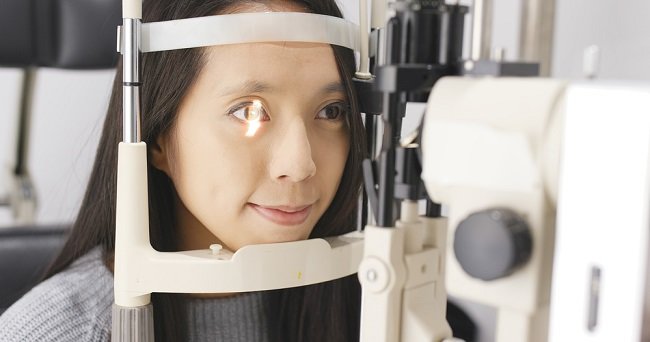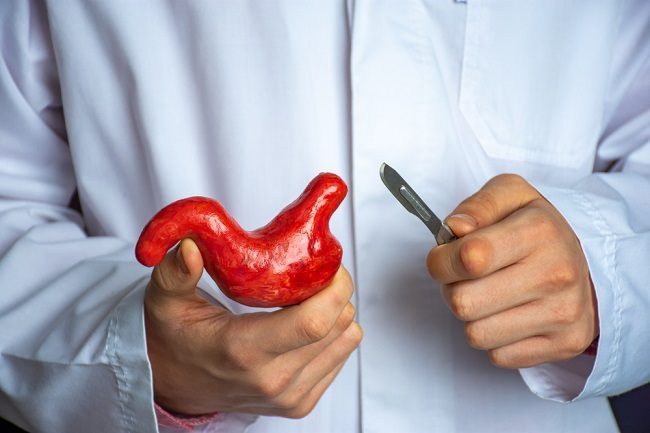Anosmia in COVID-19 is characterized by the loss of the sense of smell. These symptoms generally appear about 2-14 days after the body is exposed to the Corona virus. Why can anosmia be experienced by people with COVID-19? See the explanation in the following article.
Anosmia is a complete loss of the sense of smell. People who experience anosmia cannot smell any scent, either floral or perfume or unpleasant odors, such as foul odors and fishy odors.

If you experience symptoms of COVID-19, such as anosmia, and require a COVID-19 examination, click the link below so you can be directed to the nearest health facility:
- Rapid Test Antibodies
- Antigen Swab (Rapid Test Antigen)
- PCR
So far, several studies and case reports show that anosmia is one of the complaints that can be experienced by people with COVID-19, although this symptom does not always appear. Some COVID-19 survivors who continue to experience certain symptoms (long-haul COVID-19) can also experience anosmia.
In addition to Corona virus infection, anosmia can also be experienced by people who suffer from other conditions, such as rhinitis, nasal polyps, sinusitis, septal deviation, and olfactory nerve disorders.
Causes of Anosmia in COVID-19
Anosmia is generally caused by swelling or blockage in the nasal cavity that makes certain odors or smells undetectable by the nerves in the nose. In addition, anosmia can also occur due to problems with the nervous system that functions to detect smells or smells.
The exact cause of why COVID-19 can cause symptoms of anosmia is still not clearly understood. However, it is suspected that this condition occurs due to inflammation in the nasal cavity when the Corona virus or SARS-CoV-2 virus is inhaled into the body through the nose.
When passing through the nasal cavity, the Corona virus can attack the nervous system which functions as the sense of smell in the nose. This disorder is thought to cause symptoms of anosmia in COVID-19.
According to some studies, anosmia tends to appear early in the infection and usually resolves within 28 days. Anosmia in COVID-19 is also often accompanied by dysgeusia or impaired taste buds, such as a sour, bitter, salty, or metallic taste in the mouth. People with COVID-19 may even experience ageusia or loss of the sense of taste.
When experiencing dysgeusia as well as ageusia, people with COVID-19 can lose their appetite, even lose weight. The more severe the anosmia, the worse the disturbance in the sense of taste.
Various Other Symptoms of COVID-19
In addition to causing anosmia, COVID-19 can also cause several other symptoms, such as fever, dry cough, headache, hiccups, nausea, vomiting, and diarrhea.
The severity of COVID-19 symptoms also varies. There are COVID-19 sufferers who do not experience any symptoms, but there are also those who experience severe symptoms, such as shortness of breath, weakness, and a bluish-looking body.
Severe COVID-19 symptoms are generally more at risk for people who are elderly or have certain diseases, such as diabetes, heart disease, asthma, and HIV.
When to go to the doctor?
During a pandemic like the current one, you need to be vigilant if you experience symptoms of COVID-19, including the loss of the ability to smell. You should also be more careful if you have a contact history or often travel to crowded places.
If you feel symptoms of anosmia without any other dangerous symptoms, immediately self-isolate and get enough rest, drink more water, and take fever-reducing drugs, such as paracetamol, if you have a fever. You can also clean the inside of your nose to treat anosmia.
However, if severe COVID-19 symptoms appear, such as shortness of breath or a high fever that does not go away, contact a doctor immediately for treatment.
Anosmia in COVID-19 is not a dangerous symptom. However, this condition should not be ignored either. Be aware of the emergence of other COVID-19 symptoms while self-isolating. If necessary, consult a doctor to determine whether your anosmia symptoms are caused by COVID-19.









